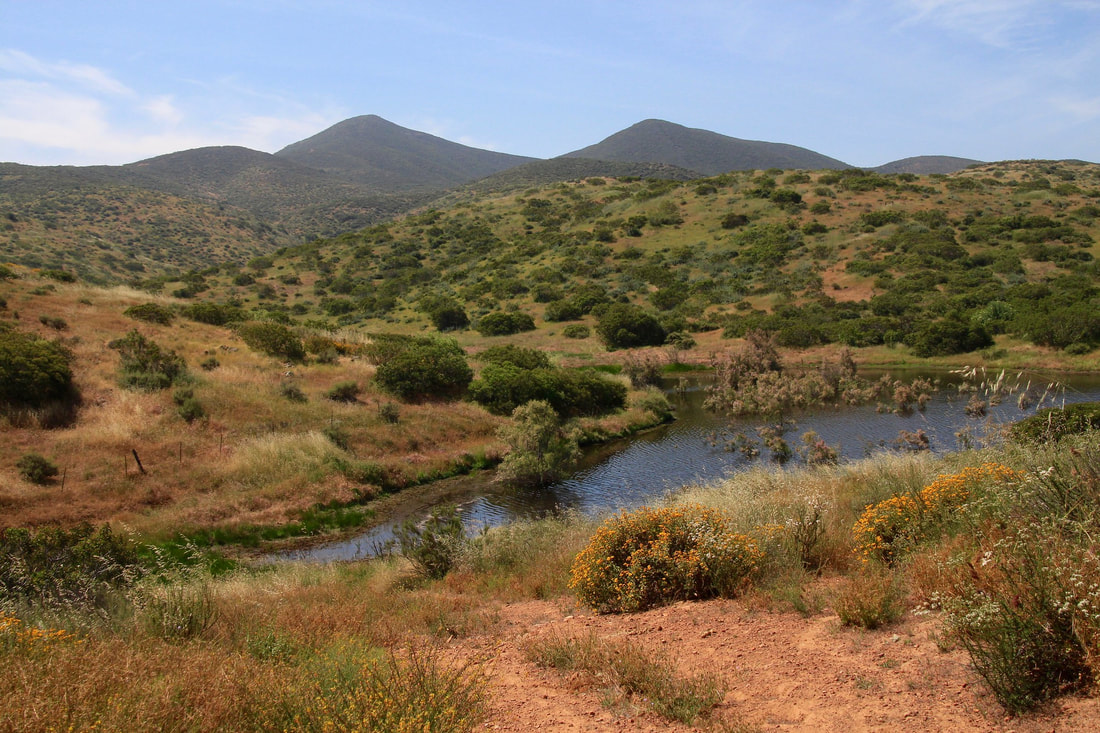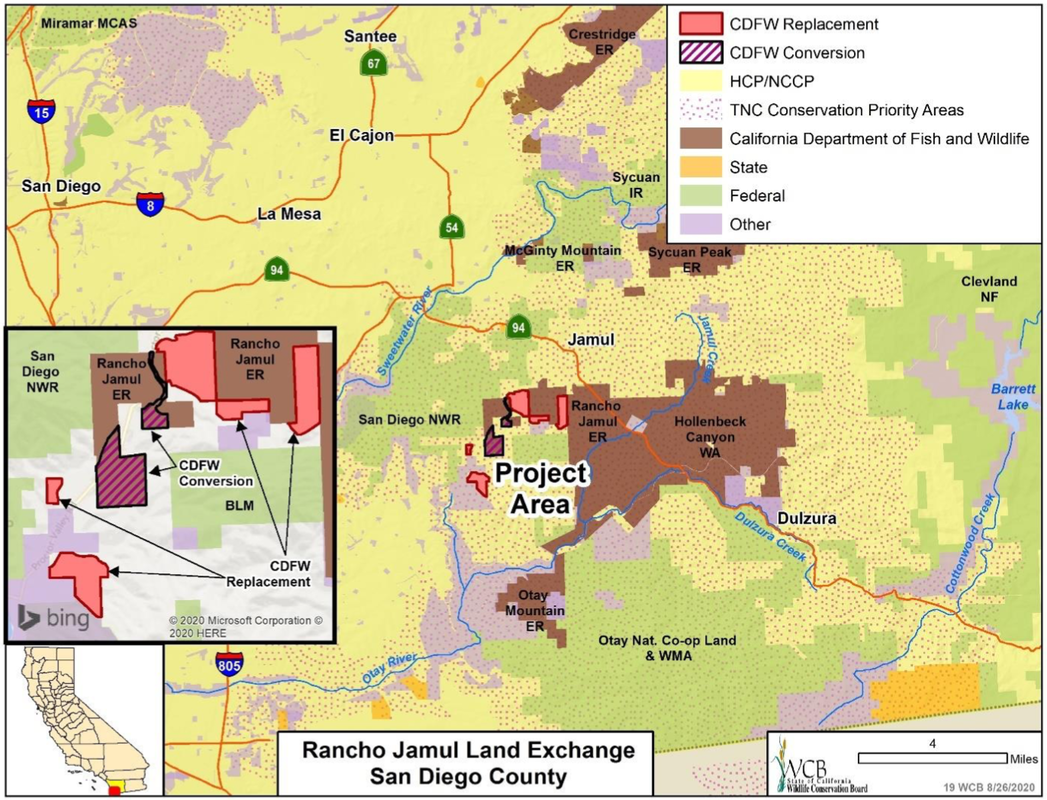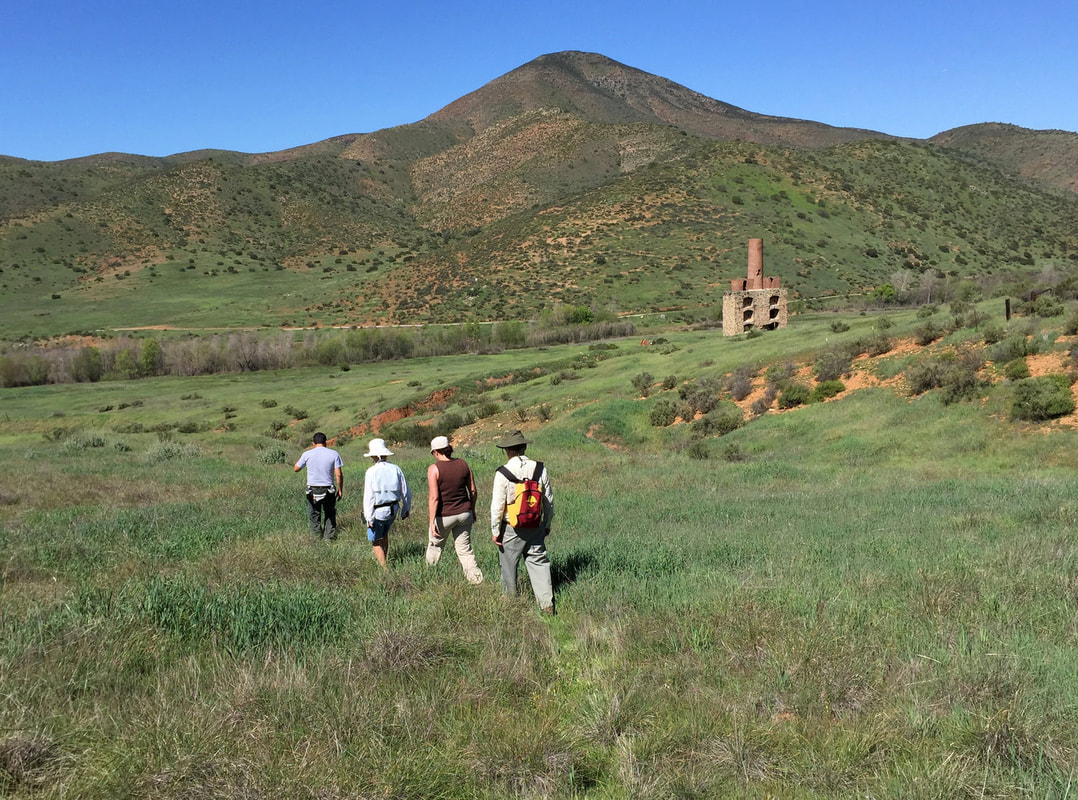|
By Tommy Hough with talking points courtesy of Frank Landis As reported in the San Diego Union-Tribune this weekend and detailed in our club's Dec. 7th Action Alert, the California Department of Fish and Wildlife acquiesced to pressure from San Diego County to exchange, or "swap," portions of the biologically valuable and previously protected Rancho Jamul Ecological Reserve for parcels within the notorious Otay Ranch Village 14 development, which our club took an official stand against last year. In other words, at the behest of developers, the county wants to swap out portions of the Rancho Jamul Ecological Reserve for less biologically-valuable areas in order to BUILD on the reserve. And they're using a sympathetic audience at the state level to make it happen. That this is occurring in California, and in San Diego County, is unconscionable. We need your voices.
The vote will take place during tomorrow's special meeting of the California Wildlife Conservation Board at 8 a.m. We need you there, and we need you to make comments. To speak at the meeting, fill out a speaker form NOW and submit it via e-mail to Wildlife Conservation Board staff member Mary Ahern at mary.ahern@wildlife.ca.gov. You'll want to make remarks regarding Item 3 on the agenda ("Rancho Jamul Land Exchange"). To dial into the meeting tomorrow (Tuesday) morning at 8 a.m., call (916) 535-0984, and use the phone conference I.D. of 871 789 882, followed by the pound sign. To access the meeting via the web, click on the "Join Microsoft Teams Meeting" link on the agenda PDF and select an app or choose the "continue on this browser" option. If you can't call in, e-mail and request that the board reject the proposal. Send your note to Wildlife Conservation Board director John Donnelly at john.donnelly@wildlife.ca.gov. Below are two sets of talking points, one from Frank Landis, and one from Renée Owens, that you can draw from for your remarks. The e-mail template you can copy and paste into a note to the board is available below. Sample E-Mail Send this note in immediately to Wildlife Conservation Board director John Donnelly at john.donnelly@wildlife.ca.gov so it can be distributed to board members as soon as possible. Dear Members of the Board, I oppose the Rancho Jamul Land Exchange (Item 3 on the Dec. 8th agenda), because it would set terrible precedents for all our public lands. It violates state statutes and California Department of fish and Wildlife (CDFW) guidelines because it would trade endangered species habitat for land that will not support the affected species. It would also "double count" already protected lands and lands used for mitigation. When the the Wildlife Conservation Board (WCB) buys land for "permanent protection," the public must be able to rely on this promise that conserved means conserved in perpetuity, not set aside for future development. Please don't approve this exchange and violate the very safeguards meant to protect our public lands. Thank you for taking my comment. Sincerely, [ YOUR NAME ] Talking Points from Frank Landis Remember, this is not a one-off case, and it sets a terrible precedent. If the board caves on this, there will only be more of theses cases. Trading off known endangered species habitat for a short-distance wildlife corridor that doesn't include the endangered species at risk in the first place is a terrible trade – and illegal to boot. If the Wildlife Conservation Board and related agencies stand together with allies in the environmental community rather than breaking ranks, the case for overturning the project grows. The land swap only looks good if one assumes the developer will win the litigation. The new, majority-Democratic San Diego County Board of Supervisors will likely have to hear at least part of this case again if the Wildlife Conservation Board doesn't approve the deal. That the California Department of Fish and Wildlife succumbed to pressure from the County of San Diego and agreed to exchange portions of the biologically valuable, and already protected, Rancho Jamul Ecological Reserve for parcels within the Otay Ranch Village 14 area has facilitated the development, and was central to its approval by the Board of Supervisors. The ecological reserve was initially purchased with public funds for "permanent preservation." State Law requires that ecological reserve lands can only be exchanged for lands of equal or greater value. Unfortunately, the CDFW's own analysis demonstrates that the land being offered is inferior to what is being given up. The parcel that's been given up supports the endangered Quino Checkerspot Butterfly, among other species, and the exchange parcel lacks the soil and vegetation needed to support Quino Checkerspots. Therefore, this swap also violates CDFW guidelines in prohibiting loss of endangered species habitat. Attempting to justify the exchange, the CDFW is double-counting as benefits lands already protected by the Multiple Species Conservation Program (MSCP), and lands that would be used as project mitigation. And that outcome would transfer development into the middle of a wildlife corridor – that is completely unacceptable. This exchange would set disastrous precedents for all public lands, as it means that all ecological reserves are potentially under threat and are simply placeholders if the right political pressure is applied to the CDFW. If the land exchange is denied, better solutions can be achieved, because the incoming Board of Supervisors will have to hear at least some part of the project again. Banner photo courtesy of the San Diego Natural History Museum
Footer photo courtesy of Earth Discovery Institue
2 Comments
12/7/2020 04:37:28 pm
Dear Members of the Board:
Reply
Renee Owens
12/7/2020 07:04:52 pm
Thanks Tommy.
Reply
Leave a Reply. |
Green Thoughts
The blog component of San Diego County Democrats for Environmental Action welcomes content from SDCDEA members, guests and leadership. Archives
October 2023
Categories |
Social Media
Quick Links |



 RSS Feed
RSS Feed

